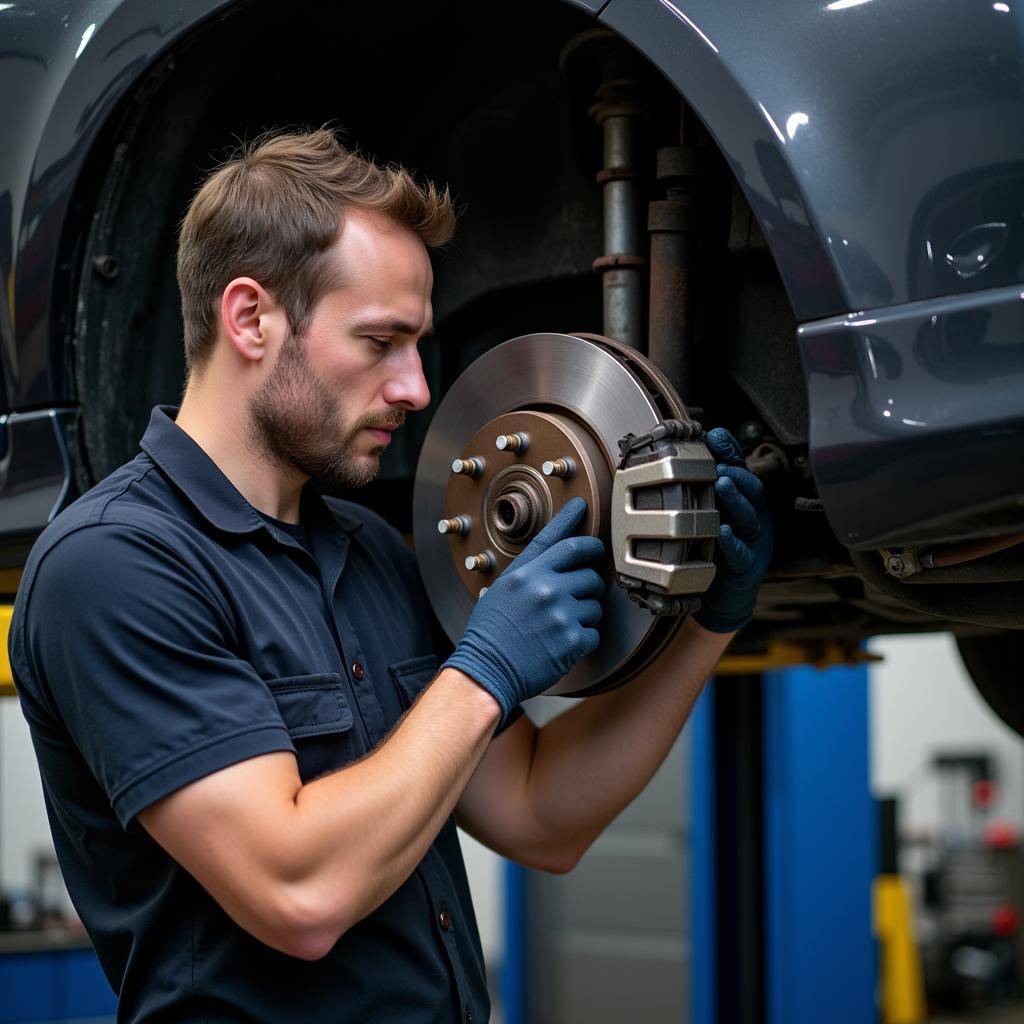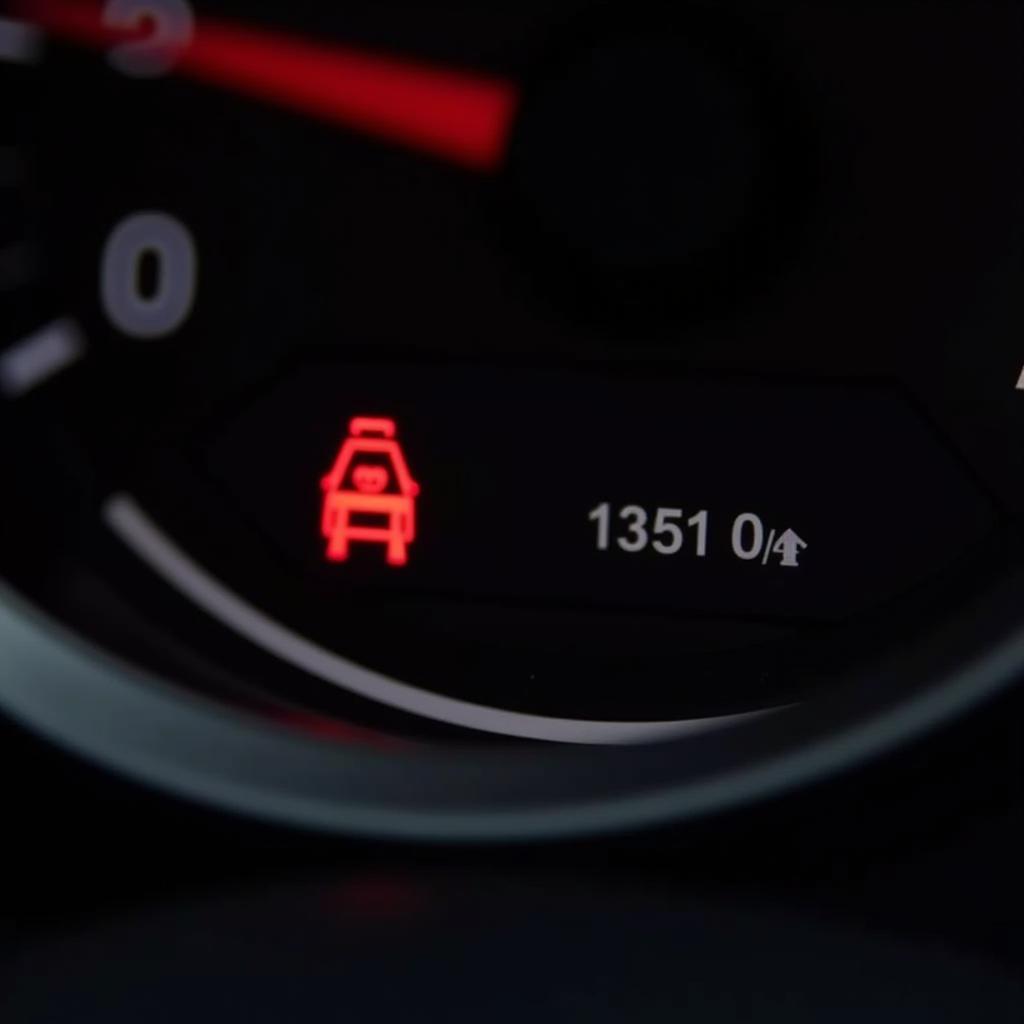Ignoring your car’s brake warning signs is like playing Russian roulette with your safety and your wallet. These warnings are your car’s way of telling you something is wrong, and ignoring them can lead to more extensive and expensive repairs down the road. Worse yet, it could lead to a serious accident. As an automotive electrical engineer specializing in remote diagnostics, programming, and software installation for vehicle repair, I can’t emphasize enough how crucial it is to address brake issues promptly.
Understanding Your Car’s Brake System
Your car’s braking system is a complex network of components working together to slow down or stop your vehicle. From the brake pedal to the hydraulic lines, calipers, rotors, and pads, each part plays a vital role. Any malfunction within this system can significantly compromise your ability to stop safely.
Common Brake Warning Signs You Should Never Ignore
Here are some common brake warning signs that demand immediate attention:
- Illuminated Brake Warning Light: This is the most obvious sign. A glowing brake light on your dashboard can indicate low brake fluid, a problem with your ABS system, or worn-out brake pads.
- Squealing or Screeching Brakes: A high-pitched squeal when you apply the brakes usually indicates worn brake pads. Don’t ignore this sound, as driving with worn pads can damage your rotors, leading to a much costlier repair.
- Grinding Noise When Braking: If you hear a grinding metal-on-metal sound when you brake, it’s a sure sign that your brake pads are completely worn down, and metal is rubbing on metal. This requires immediate attention, as it can severely damage your rotors.
- Vibrating Brake Pedal: A pulsating or vibrating brake pedal when you apply the brakes can indicate warped brake rotors. This can make braking less effective and requires immediate attention.
- Car Pulls to One Side When Braking: If your car veers to one side when you apply the brakes, it could be due to uneven brake pad wear, a stuck caliper, or a problem with the hydraulic system. This can make it difficult to control your vehicle and requires immediate attention.
- Soft or Spongy Brake Pedal: If your brake pedal feels soft or sinks to the floor, it could be a sign of air in the brake lines or a leak in the braking system. This can make it difficult to stop your car effectively and requires immediate attention.
- Burning Smell While Driving: A strong, acrid smell, similar to burning rubber or plastic, while driving or after braking, could indicate overheated brakes or a serious brake fluid leak. Stop driving immediately and have your vehicle towed to a mechanic.
- Brake Fluid Leak: Check your garage floor or driveway for any signs of fluid leaks. Brake fluid is typically clear or slightly yellowish and has an oily consistency. A leak in your brake system can lead to brake failure and requires immediate attention.
What to Do When You Notice Brake Warning Signs
If you experience any of the warning signs mentioned above, don’t hesitate to take action:
- Don’t Panic: While it’s crucial to address brake problems quickly, panicking can cloud your judgment. Stay calm and pull over to a safe location as soon as possible.
- Assess the Situation: Try to identify the specific warning sign(s) you’re experiencing. This information will be helpful when you consult with a mechanic.
- Seek Professional Help: Unless you have advanced mechanical skills, it’s best to have your brakes inspected and repaired by a qualified mechanic. They have the expertise and tools to diagnose and fix the problem correctly.
Can Remote Diagnostics Help with Brake Problems?
While remote diagnostics can be valuable for identifying certain electronic issues in your car, including some related to the ABS system, it’s essential to understand its limitations when it comes to brake problems. Remote diagnostics can’t physically inspect your brakes or replace worn components. However, it can sometimes provide valuable clues that point your mechanic in the right direction, potentially saving time and money on diagnosis.
 Mechanic Inspecting Car Brakes
Mechanic Inspecting Car Brakes
Never Ignore Brake Warning Signs
Your car’s brakes are your lifeline on the road. Ignoring warning signs can have serious consequences, jeopardizing your safety and potentially leading to costly repairs. If you notice anything unusual about your brakes, don’t hesitate to seek professional help. Addressing brake problems promptly ensures your safety and can save you money in the long run.

